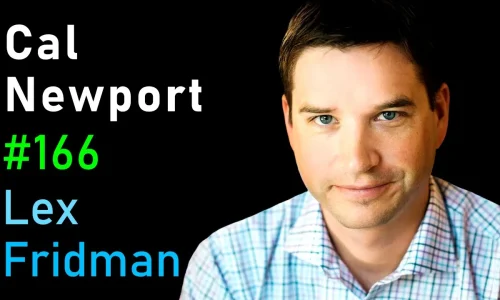See all Lex Fridman transcripts on Youtube

Cal Newport: Deep Work, Focus, Productivity, Email, and Social Media | Lex Fridman Podcast #166
3 hours 3 minutes 4 seconds
🇬🇧 English

Omnivision Solutions Ltd
- Getting Started
- Create Transcript
- Pricing
- FAQs
- Recent Transcriptions
- Roadmap